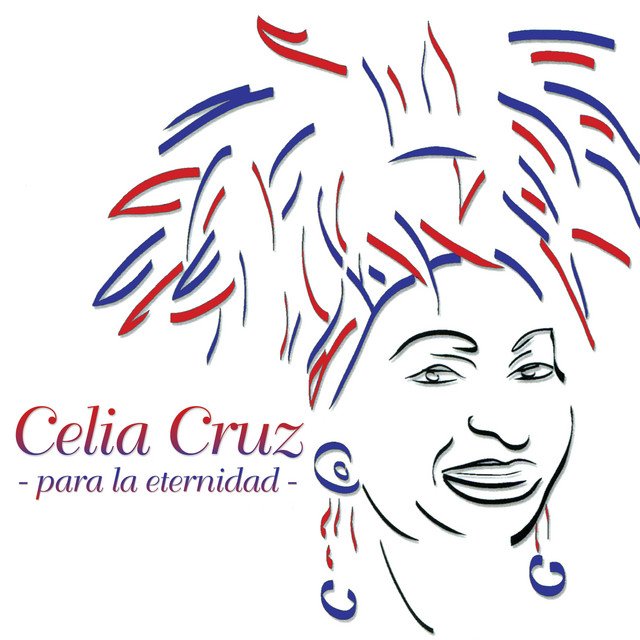Gabriela recommends “La Vida Es Un Carnaval” by Celia Cruz
Seven years old and sleeping on two foldable chairs at my Tia’s wedding, the lively beats of "La Vida Es Un Carnaval" urge me to awaken. Around me, colorful lights dance around the venue as I sit up from my seat and stare at the space of seated and standing people and an endless sea of white clothed tables. I see now that time has passed since I skilfully crafted my makeshift bed for the night, an ingrained practice that came from many nights of parties gone too long and accidental sleepovers. The tables, I find, are adorned not just with the rose centerpiece we had helped my Tia pick out months prior, but leftover empty plates holding traces of flautas, beans, tamales, and rice. Then I hear a teasing, Mira ya quien despierto? (Look who just woke up?)
Todo aquel que piense que la vida es desigual
Tiene que saber que no es así
Que la vida es una hermosura, hay que vivirla
It’s my Mamá and Abuelita, looking over lovingly behind me. They appear to be finishing up, what I deduce, from the colors of white, green, and red on their plates to be jello from the dessert table. I grumble and get on over to them, trying my best to readjust the red ribbon on the waist of my dress and the flower girl crown on top of my head. To my mother’s discontent, I ask the very question she was sick of hearing that night, ¿Cuándo vamos? (When are we leaving?)
She gives me a look telling me to proceed with caution and I get the feeling that fighting this is a losing game or will only give way to the simple reply of en un ratito (in a little bit). For this reason, I try my chances on my Abuela. I gently lean into her arm whining and giving her what I believe is a top notch pout that she could never resist from her favorite nieta. Yet, I am surprised when I find that she raises me from my slump and places her warm hands on my cheeks and begins to sing:
Ay, no hay que llorar (No hay que llorar)
Que la vida es un carnaval
Y es más bello vivir cantando
Its familiarity along with her use of it against me gives way to an annoyed expression on my face. She seems amused by this before she goes to track down my Papá with her eyes and motions him over. I can tell from his walk over that he had been having a great time with my tios at the open bar. Ándale, Herman llévala a bailar (C’mon Herman take her to dance). My Papá sighs but lifts me in his arms, adjusting my flower crown and pinching my chin. Vente mi princesita, he coaxes. (Come my princess).
I whine some more, but the protests fade as he bounces me towards the dance floor, our surroundings transforming into a whirlwind of dancing couples and familiar faces, all singing along:
Oh-oh-oh, ay, no hay que llorar (No hay que llorar)
Que la vida es un carnaval
Y las penas se van cantando
Years later, the exact moment when I first encountered this cultural relic of a song escapes me. Yet, I think now that this lack of knowing perhaps speaks to its significance. When I was younger I could always count that the song would just be there. It had a permanent spot in the playlists and mixes of my family. Whether it was at my Tia’s wedding, my Madrina’s birthday, or simply a gathering with the entire family I could count on it to ignite a celebration just as much as I could count that the faces who I would find at these parties would stay around. In some ways this is true, in others not so much. But that's the thing with childhood, when you're in it, things feel so permanent. You feel like you will be a child forever.
Which is why the lyrics, Que la vida es un carnaval, stand as a great reminder of life's ups and downs—its impermanence. Cruz in this song utilizes this upbeat mix of cumbia and salsa to make light of change and especially the hardships life throws at us. Her words cradle the faces of her listeners, easing their concerns about the present and the future, inviting them to sing and dance away their woes. Change as I have gotten older is by no means an easy feat. However, embracing the wisdom of this song and finding a way to smile and dance through the tough times, trusting they won't last forever, does make life’s uncertainties all the less daunting.
From an early age, Gabriela discovered solace and inspiration within the pages of books. Immersed in the works of esteemed authors, she found her own desire to craft stories and become a writer. Alongside her academic pursuits, Gabriela is also a prospective student of the TEACH: Secondary Education English program, driven by her aspiration to become an educator in the future.
Listen:
